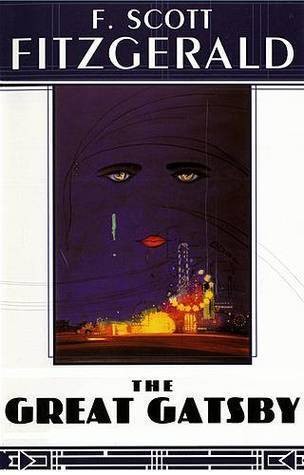The Great Gatsby, F. Scott Fitzgerald’s third book, stands as the supreme achievement of his career. This exemplary novel of the Jazz Age has been acclaimed by generations of readers. The story is of the fabulously wealthy Jay Gatsby and his new love for the beautiful Daisy Buchanan, of lavish parties on Long Island at a time when The New York Times noted “gin was the national drink and sex the national obsession,” it is an exquisitely crafted tale of America in the 1920s.
The Great Gatsby is one of the great classics of twentieth-century literature.











Berry –
I didn’t like the book very much
Alex –
The Great Gatsby is your neighbor you’re best friends with until you find out he’s a drug dealer. It charms you with some of the most elegant English prose ever published, making it difficult to discuss the novel without the urge to stammer awestruck about its beauty. It would be evidence enough to argue that F. Scott Fitzgerald was superhuman, if it wasn’t for the fact that we know he also wrote This Side of Paradise.
But despite its magic, the rhetoric is just that, and it is a cruel facade. Behind the stunning glitter lies a story with all the discontent and intensity of the early Metallica albums. At its heart, The Great Gatsby throws the very nature of our desires into a harsh, shocking light. There may never be a character who so epitomizes tragically misplaced devotion as Jay Gatsby, and Daisy, his devotee, plays her part with perfect, innocent malevolence. Gatsby’s competition, Tom Buchanan, stands aside watching, taunting and provoking with piercing vocal jabs and the constant boast of his enviable physique. The three jostle for position in an epic love triangle that lays waste to countless innocent victims, as well as both Eggs of Long Island. Every jab, hook, and uppercut is relayed by the instantly likable narrator Nick Carraway, seemingly the only voice of reason amongst all the chaos. But when those boats are finally borne back ceaselessly by the current, no one is left afloat. It is an ethical massacre, and Fitzgerald spares no lives; there is perhaps not a single character of any significance worthy even of a Sportsmanship Award from the Boys and Girls Club.
In a word, The Great Gatsby is about deception; Fitzgerald tints our glasses rosy with gorgeous prose and a narrator you want so much to trust, but leaves the lenses just translucent enough for us to see that Gatsby is getting the same treatment. And if Gatsby represents the truth of the American Dream, it means trouble for us all. Consider it the most pleasant insult you’ll ever receive.